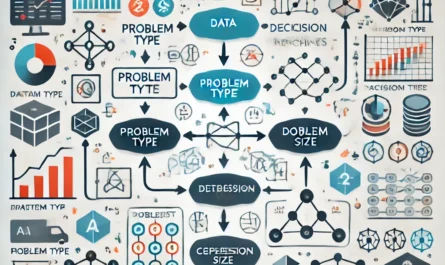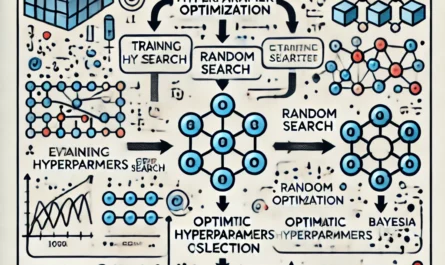Artificial Intelligence (AI) has undeniably revolutionized how businesses operate, introducing a new level of automation that is transforming industries worldwide. If you’re looking to enhance your business processes, AI automation presents an opportunity to improve efficiency, accuracy, and innovation at scale. Let’s explore how AI can drastically optimize operations, reduce costs, and enable data-driven decision-making for your business.
AI Automation: The Key to Business Efficiency
In today’s competitive market, operational efficiency is a top priority for businesses of all sizes. AI automation plays a vital role in streamlining workflows, eliminating human errors, and accelerating routine tasks. From simple automation of repetitive administrative tasks to complex AI algorithms driving decision-making, businesses that adopt AI technologies are seeing a marked increase in productivity.
By automating tasks such as customer service queries, financial processes, and inventory management, businesses can shift focus from mundane tasks to innovation and growth strategies. AI automation ensures that processes are completed faster, with fewer mistakes, and with minimal human intervention, all while maintaining consistent performance.
Understanding AI in Business Operations
Artificial intelligence, in its simplest form, is the simulation of human intelligence by machines. But how does this apply to business operations? AI systems can learn from data, identify patterns, and make decisions with minimal human intervention, all while improving over time. These capabilities allow businesses to scale faster, react to market changes more efficiently, and deliver more personalized customer experiences.
Some common forms of AI used in business include machine learning (ML), natural language processing (NLP), and robotic process automation (RPA). These technologies offer solutions to automate everything from data entry to complex decision-making, freeing up time for employees to focus on high-value activities.
Why Business Process Improvement Matters
To stay ahead of competitors and meet customer expectations, businesses must continuously improve their processes. Business process improvement (BPI) refers to the practice of analyzing, redesigning, and optimizing processes to achieve better performance, efficiency, and quality. Without process improvements, businesses can become bogged down by inefficiencies, higher costs, and slower response times, ultimately affecting their bottom line.
Implementing AI automation as part of process improvement ensures that businesses remain agile, adaptable, and efficient. AI tools provide the speed and precision necessary to execute processes at scale, making it easier to handle larger workloads and meet growing demands.
Benefits of AI Automation in Business
When businesses invest in AI automation, they unlock several powerful benefits:
- Increased Efficiency: AI handles repetitive tasks much faster and with higher accuracy than humans.
- Cost Savings: Automation reduces the need for large teams to manage administrative tasks, lowering labor costs.
- Enhanced Accuracy: AI eliminates the risk of human error in data entry, decision-making, and reporting.
- Scalability: Businesses can easily scale operations without significant additional investment in staff.
- Real-Time Data Access: AI systems can process vast amounts of data in real time, providing valuable insights to support decision-making.
These benefits lead to a more agile and resilient business, better positioned to respond to changes in the market or customer needs.
Real-World Examples of AI Automation in Business
Numerous companies across different industries have already embraced AI automation with transformative results. For example:
- Amazon utilizes AI-powered robots in its warehouses to streamline order fulfillment and inventory management.
- Spotify uses AI to analyze user listening patterns and recommend personalized music playlists, improving customer retention.
- American Express leverages AI for fraud detection, scanning transactions in real-time to identify and block suspicious activity.
These examples illustrate the diverse applications of AI across industries and highlight the potential for businesses to use AI to achieve operational excellence.
You can also read; How to Build an AI-Powered Recommendation System
Identifying Business Processes Suitable for AI Automation
Before diving into AI automation, it’s essential to identify which processes are best suited for automation. Some key indicators include tasks that are:
- Repetitive and time-consuming
- Prone to human error
- Data-intensive or involve large-scale processing
- Frequently performed and high-volume
- Dependent on strict rules or logic-based operations
Common processes ideal for AI automation include customer service, financial reporting, data entry, and supply chain management.



